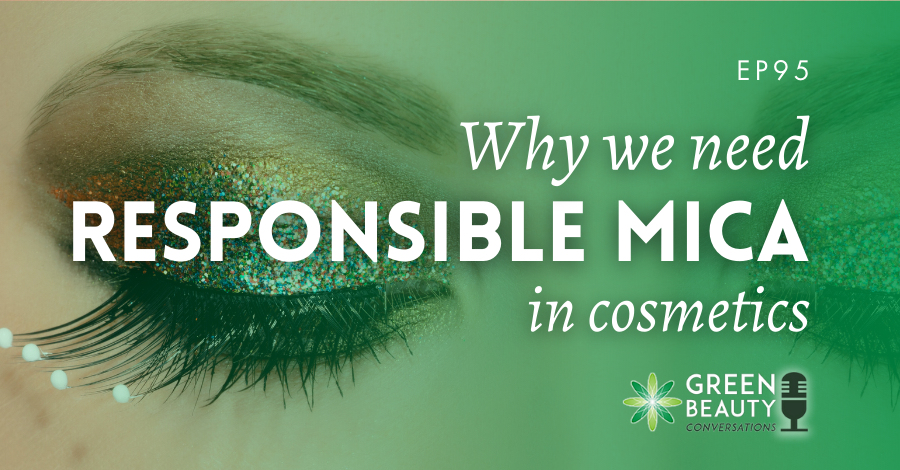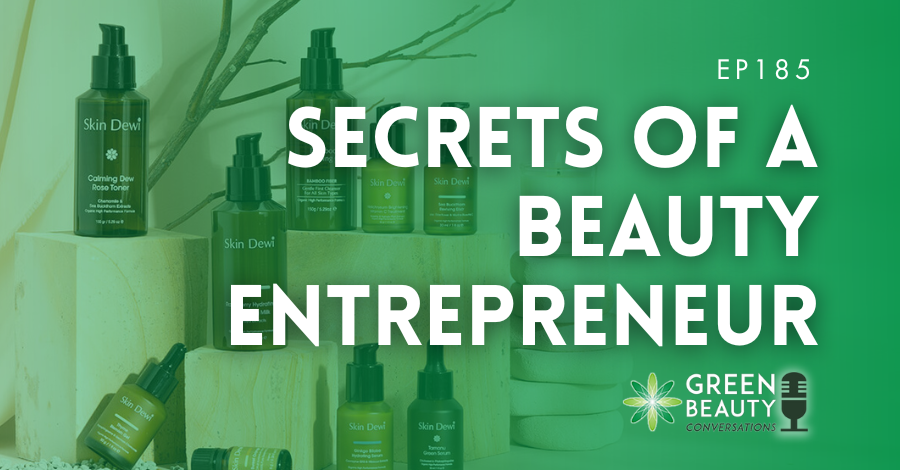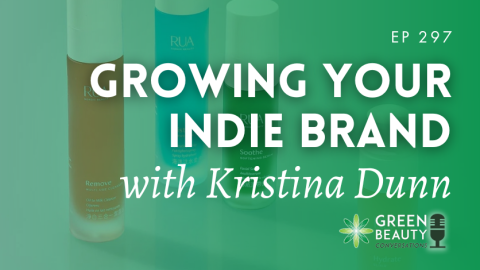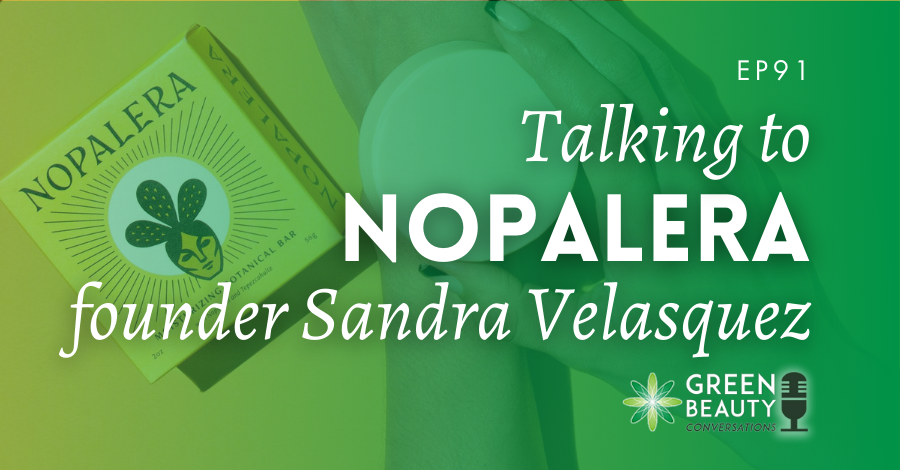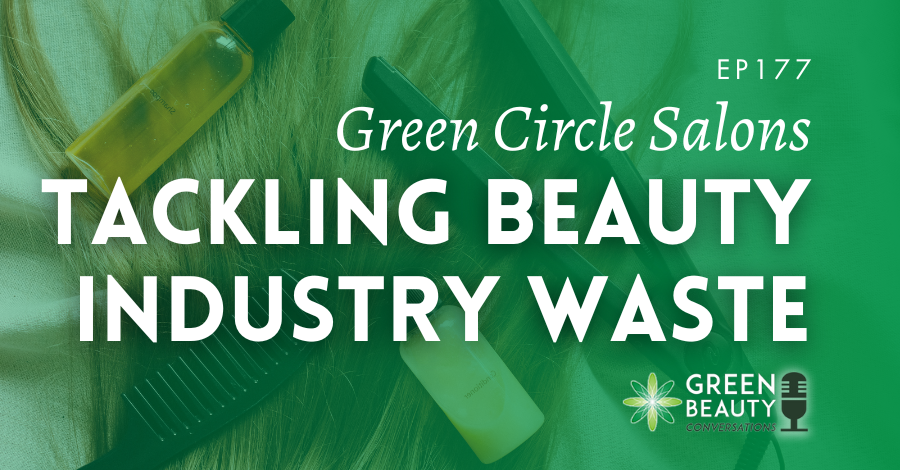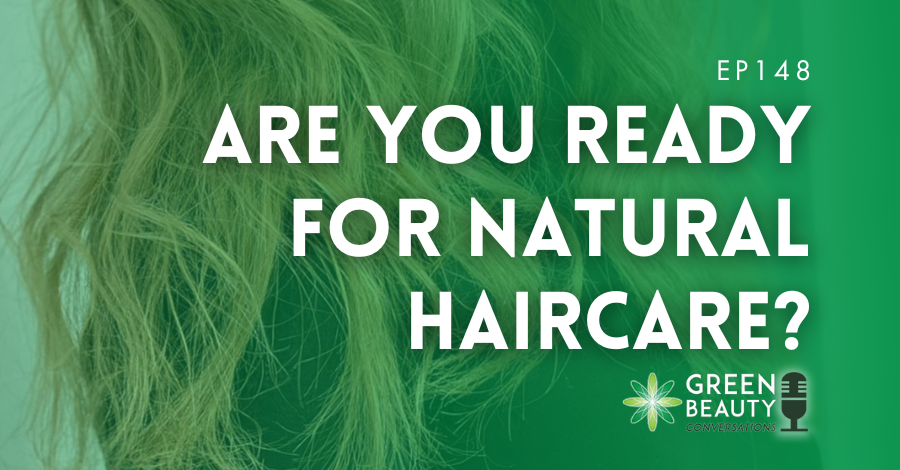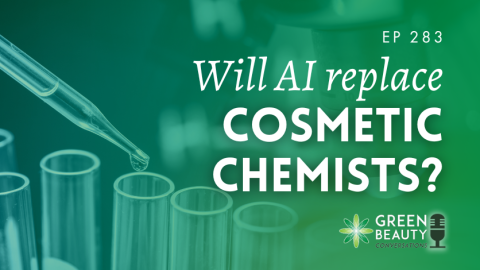As we go to air with this episode of Green Beauty Conversations in early 2022, the predictions are that frosted eye shadows, glittery nail art and luminescent blushers are going to be big trends this year. Adopting the hashtag #Y2K, a new generation of beauty consumers is exploring makeup trends of the 1980s to the millennium, shaking off the past two years of mask wearing and rediscovering the allure and shimmer of mica minerals in cosmetics.
But, all that glitters in the cosmetics’ world is not gold. Behind those shiny cosmetics lies a mineral mining industry that in some parts of the world relies on artisan and small-scale miners who are living in poverty and have to put their children to work to have any chance of supporting their families.
How can natural formulators or beauty consumers know where their mica comes from and the conditions in which it is mined? What about the environmental as well human health and welfare impact of mica mining in parts of the world that lie well out of sight of the global cosmetics industry? What can we do to source and buy cosmetics using ethically-mined mica?
In this episode, Formula Botanica CEO and podcast host Lorraine Dallmeier – a chartered environmentalist with a passion for probing into unsustainable and exploitative practices in the beauty industry – talks to Olivier Dubourdieu, Project Manager at the Responsible Mica Initiative, to find answers to these questions.
Mica is mined in more than 35 countries with production volumes showing India and Madagascar as the largest global producers. The Responsible Mica Initiative (RMI) is a global coalition for action – putting policy into practice – comprised of multiple organisations committed to establishing a fair, responsible and sustainable mica supply chain. Working in the Indian states of Jharkhand and Bihar, but with the intention of expanding its work to other parts of the world, RMI and its now 80 brand and corporate members are committed to eliminating unacceptable working conditions and eradicating child labour in those Indian states by 2030.
All that glitters is not gold. Mica mining for cosmetics fuels issues like child labour. @FormulaBotanica talks to #ResponsibleMicaInitiative on their mission to change this. #mica #cosmeticsindustry #childlabour Share on X
View this post on Instagram
In this episode on sourcing responsible mica, you will hear how:
- Mica is a family of some 37 phyllosilicate minerals which are present in a huge range of everyday applications from cosmetics to paint, from electrical insulation to car parts, and from hair dryers to batteries. Mica is used everywhere as it can resist high temperatures, is inert and, as we in the beauty industry know, is shiny.
- Artisan, small-scale miners (ASMs) produce 80-90 percent of India’s 100,000 tonne mica mineral output each year. Entire villages and regions depend on mica mining for their livelihoods but the majority of mining families work in isolated, rural areas at poverty level.
- Mica minerals can compose 50-90 percent of certain cosmetics; think of cosmetic powders, eye pencils and shadows, blushers and lipsticks. The beauty industry is a huge consumer of mica, whether luminescent cosmetics are ‘in fashion’ or not.
- Why mica mining, although a hugely important global industry, is responsible for creating conditions for child labour, is damaging to health, and to the environment.
Key takeouts include:
- The Responsible Mica Initiative does not advocate the boycotting of mica in cosmetics for the simple reason that entire communities depend on mica mining for their livelihoods. Responsible, ethical mica sourcing that pays fair wages, empowers communities and acts to provide better living conditions and to eradicate child labour are the way forward.
- Swapping natural mica for synthetic or other mineral alternatives is also not the answer. Any alternative would need in-depth research to evaluate its own carbon footprint or other environmental and human impacts. And alternatives would deprive vulnerable rural communities across the world of their income.
- As small-scale natural formulators and beauty consumers ourselves, we can play our part in supporting actions such as those of the RMI by asking hard questions of cosmetic suppliers and brands we buy from. We need to raise our voices and ask about the origins of the mica in cosmetics and the conditions in which it is sourced.
Meet our guest: Olivier Dubourdieu

Find out more:
Responsible Mica Initiative
RMI on Linkedin
If you enjoyed this episode, you might also like to listen to our other episodes on sustainability and ethical consumer issues in the beauty industry:
Biodegradable beauty: a license to greenwash the beauty industry?
Top sustainability challenges and concerns for the beauty industry
Are indie brands falling behind on sustainabiity?
Can a beauty brand ever be carbon neutral?
Are beauty brands falling behind on sustainability?
Thank you for joining us for this episode of the Formula Botanica Green Beauty Conversations podcast. If you enjoyed listening, please share, subscribe and review this episode on Apple Podcasts, Spotify or Youtube so that more people can enjoy the show. Don’t forget to follow and connect with us on Facebook and Instagram.
FREE TRAINING
Learn how to become an
Organic Skincare Formulator
FREE TRAINING
How to become an
Organic Skincare Entrepreneur
FREE TRAINING
How to become an
Organic Skincare Entrepreneur
Leave us a comment
Lorraine Dallmeier is a Biologist, Chartered Environmentalist and the CEO of Formula Botanica, the award-winning online organic cosmetic science school. Read more about Lorraine and the Formula Botanica Team.

